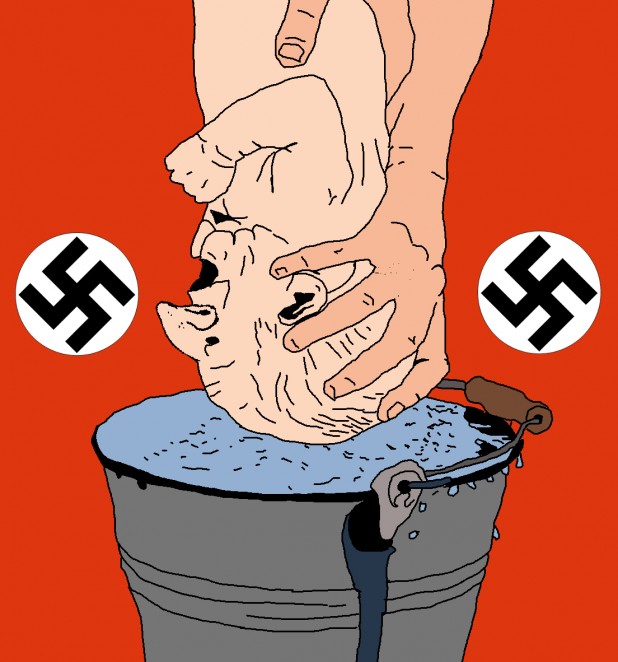Andrew Anglin
Daily Stormer
January 23, 2017
It was real… in my mind.
For years, I have insisted that the Holocaust myth/hoax is central to the entire system of political correctness.
You can literally take some slut mad at her father having sex with a Negroid ape and explain how it is happening because people believe in the Holocaust.
Fortunately, young people just aren’t buying this stupid lampshade hoax in the way the pathetic baby-boomers did.
The Jews are struggling.
A new generation of Holocaust deniers is emerging through a clutch of popular “gateway” conspiracy theories, according to one of the UK’s leading experts on the subject.
As Denial, a film about the disgraced historian and notorious Holocaust denier David Irving, hits cinemas later this month, attention is focusing on the ageing generation of deniers who emerged with Irving at its vanguard and are now dying out. But it appears that Holocaust denial has found new momentum in the digital age.
The UK’s foremost academic on the subject claims a new internet-based generation is embracing denial, having been drawn to it out of antisemitism or a belief in conspiracy theories.
Dr Nicholas Terry, a history lecturer at Exeter University, estimates that there are now thousands of “low-commitment” Holocaust deniers online. Rather than recruiting from established far-right denial forums, they are attracting followers drawn to outlandish theories such as those surrounding the assassination of JFK, 9/11, the moon landing and the Sandy Hook school massacre.
Try millions.
I get 150,000 unique visitors a day, and none of these people believe in your stupid lampshade hoax.
The jig is 100% up.
“In one sense, the internet means Holocaust deniers have got a lot of competition,” Terry said. “On the other, in this more free-form world, deniers have been able to attract a certain minority from the world of conspiracy theories. There’s a sense of disorientation taking place when it comes to where people are getting their news from.
“This kind of free-for-all on the internet creates a milieu that has seen people who would normally identify along the left of the political spectrum gravitate towards ideas that are more at home on the far right.”
The release of Denial – which centres on the libel trial brought by Irving against the Holocaust scholar Deborah Lipstadt – follows the controversy that erupted when it emerged Google’s algorithms were recommending antisemitic, white nationalist and Holocaust denier websites for searches of the question: “Did the Holocaust happen?” The film has already been attacked by the new generation of deniers on YouTube, Reddit and Twitter.
Terry, who has monitored Holocaust denial online for 10 years and is co-editing a forthcoming book, Holocaust and Genocide Denial: A Contextual Perspective, has personal experience of their tactics, having been trolled online. He founded the anti-denial blog, Holocaust Controversies, to “debunk” their claims.
He said that many claiming that the Holocaust did not happen were often less intellectual than the earlier generation of deniers. They were an “international crowd – lots of Americans, British, Scandinavians, and west Europeans, as well as some Brits” – who made little attempt to justify their views with facts, resulting in what Terry termed a “Twitterification” of denial.
Maybe you should just present your evidence that the Holocaust happened then, huh?
Oh, you don’t have any?
Hm.
That could be a problem then, I guess.
Maybe you should invent some new hoax that is easier to defend against critical inquiry?
Like, what if you said that Nazis used aliens to abduct the Jews and gassed them on the moon? Then people couldn’t be like “yeah but where are these millions of burned-up bodies though? Shouldn’t there be mass graves filled with ashes somewhere?”

